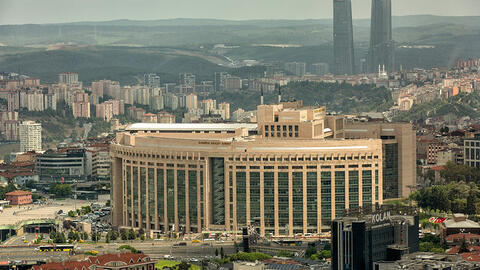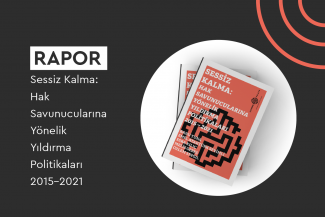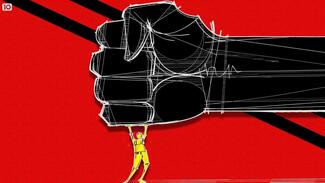
In a report published today, the Council of Europe Commissioner for Human Rights, Dunja Mijatović, calls on the Turkish authorities to restore judicial independence and stop the practice of targeting human rights defenders, lawyers and journalists and silencing them by using administrative and judicial actions. The report is based on the Commissioner’s visit to Turkey carried out in July 2019.
The Commissioner considers that the measures that the authorities took in the aftermath of the state of emergency had devastating consequences on judicial independence and impartiality and threaten the rule of law and human rights in Turkey. Numerous long-standing problems, such as the misuse of detentions on remand, have been exacerbated and compounded by new shortcomings. The Commissioner is alarmed by the fact that the Turkish judiciary displays, especially in terrorism-related cases, unprecedented levels of disregard for even the most basic principles of law, such as presumption of innocence, no punishment without crime and non-retroactivity of offences, or not being judged for the same facts again. At the same time, procedural guarantees such as adversarial proceedings, equality of arms and the right to a lawyer, were significantly and permanently eroded during the state of emergency, resulting in a level of legal uncertainty and arbitrariness which threatens the very essence of the rule of law.
“I am aware of the extraordinary challenges faced by Turkey in fighting many terrorist organisations on many fronts, as it is its right and duty. However, disregarding human rights in this process would only discredit and undermine this fight in the long run, while eroding the rule of law and trust in the justice system at the same time.”
The emergency decrees have also had a negative effect on access to justice and to an effective remedy. “The current system, including the Inquiry Commission, is unlikely to satisfy the criteria enshrined in the European Convention on Human Rights, unless the administrative courts display a much higher level of respect for the individuals’ human rights,” says the Commissioner. She also raises concerns about recent developments jeopardising the effectiveness of individual applications to the Constitutional Court as a domestic remedy for human rights violations.
The Commissioner calls on the Turkish authorities to revert to the situation before the state of emergency in terms of constitutional and structural guarantees for the independence of judges, as well as procedural fair-trial guarantees, and then to reinforce them progressively. She also recommends a complete review of criminal legislation in the light of the clear guidance already provided to Turkey by Council of Europe bodies over the years. Considering that the prevailing attitude within the judiciary represents one of the main problems concerning the administration of justice today, she urges the Turkish authorities to change course and start respecting scrupulously the independence of the judiciary. While welcoming the authorities’ Judicial Reform Strategy, the Commissioner considers that the measures taken so far do not correspond to current and future needs, which require a more comprehensive and resolute response.
Stressing the importance of civil society organisations and human rights defenders in a democratic society, the Commissioner is alarmed by the hostile environment against them and by a virulent and negative political discourse that frequently leads to biased actions by administrative authorities and the judiciary, and calls on the authorities to address this problem. The Commissioner considers that the misuse of criminal investigations, proceedings, detentions and sentences to silence human rights defenders and to discourage civil society engagement is the most acute symptom of the mounting pressure they are facing in Turkey. The Commissioner urges the authorities to acknowledge this situation and rectify it through all available means.
“The authorities should also establish transparent and objective criteria and procedures regarding public funding, consultation of and collaboration with civil society organisations active in the field of human rights. They should revoke the obligation to register all members of NGOs in a centralised database of the Ministry of the Interior and lift open-ended and indiscriminate bans, such as the ban on LGBTI-related activities in Ankara.”
Lastly, Commissioner Mijatović underscores that lawyers have been affected both as human rights defenders and as an integral part of the judicial process guaranteeing the right to a fair trial. She calls on the authorities to lift the restrictions to procedural defence rights adopted during the state of emergency, and to allow lawyers to work freely and safely.


